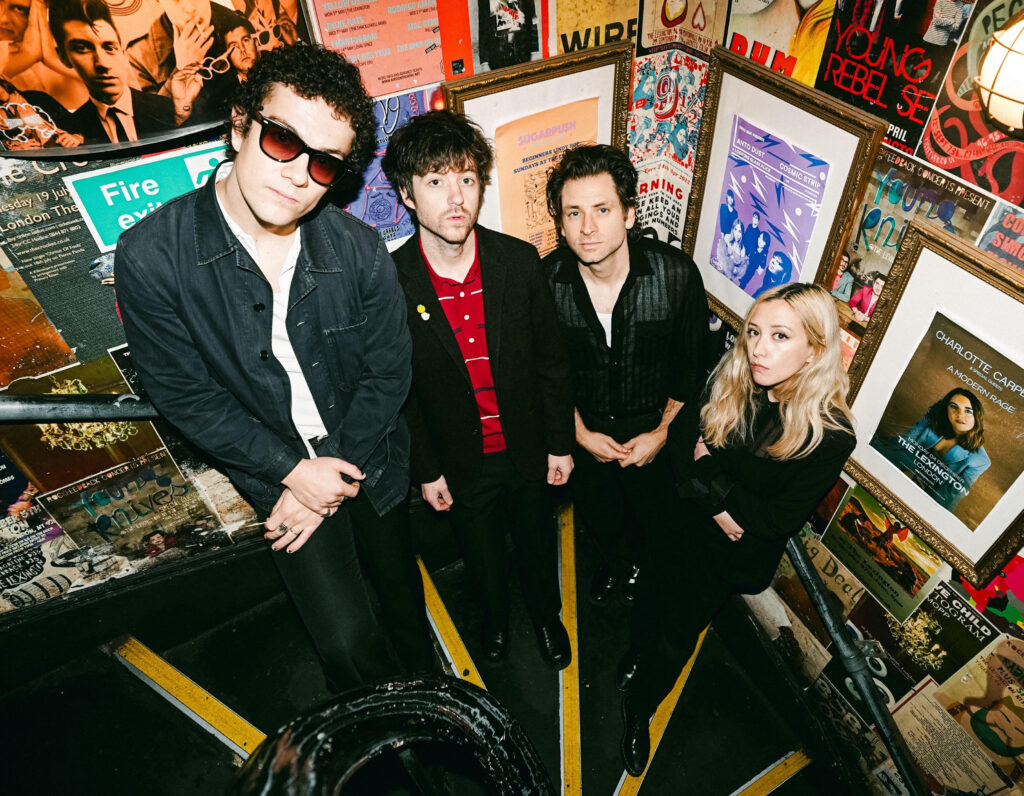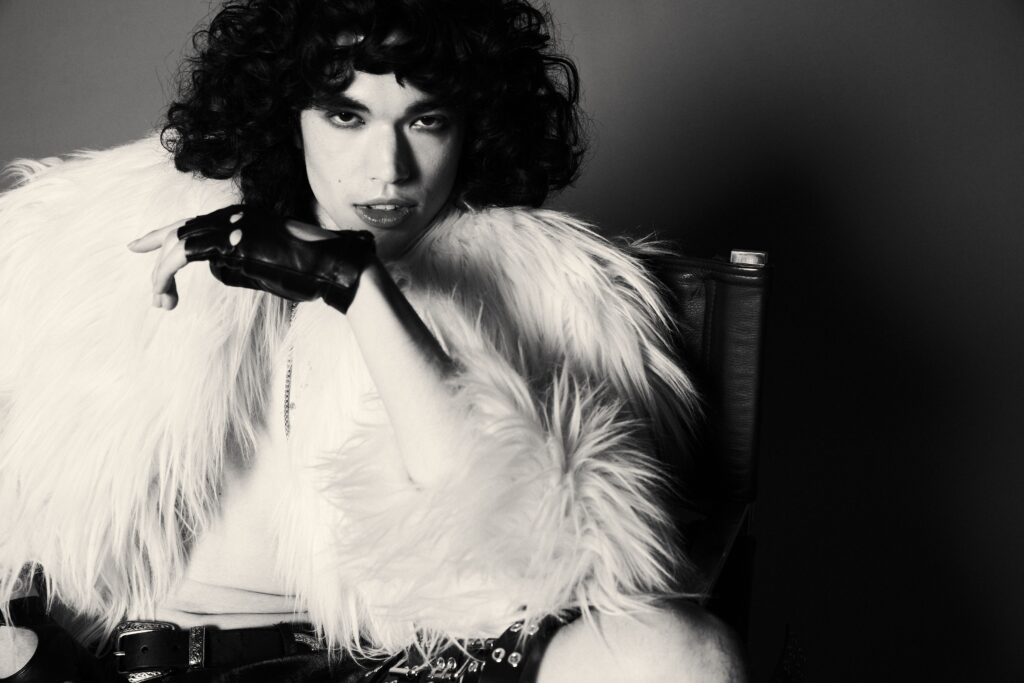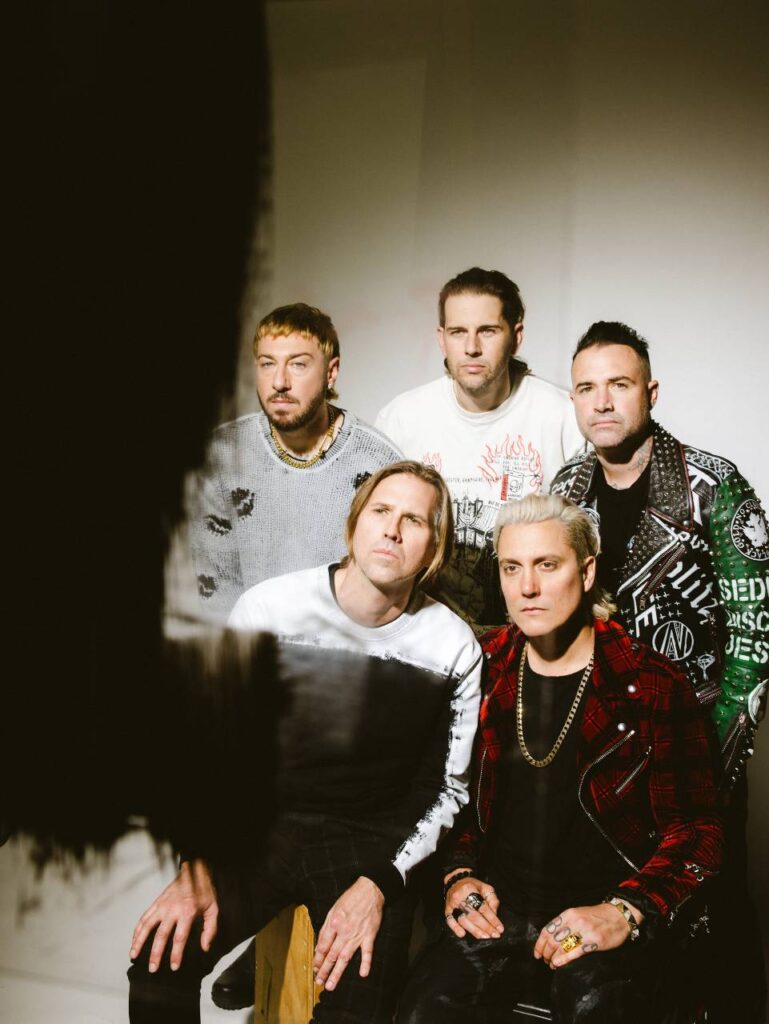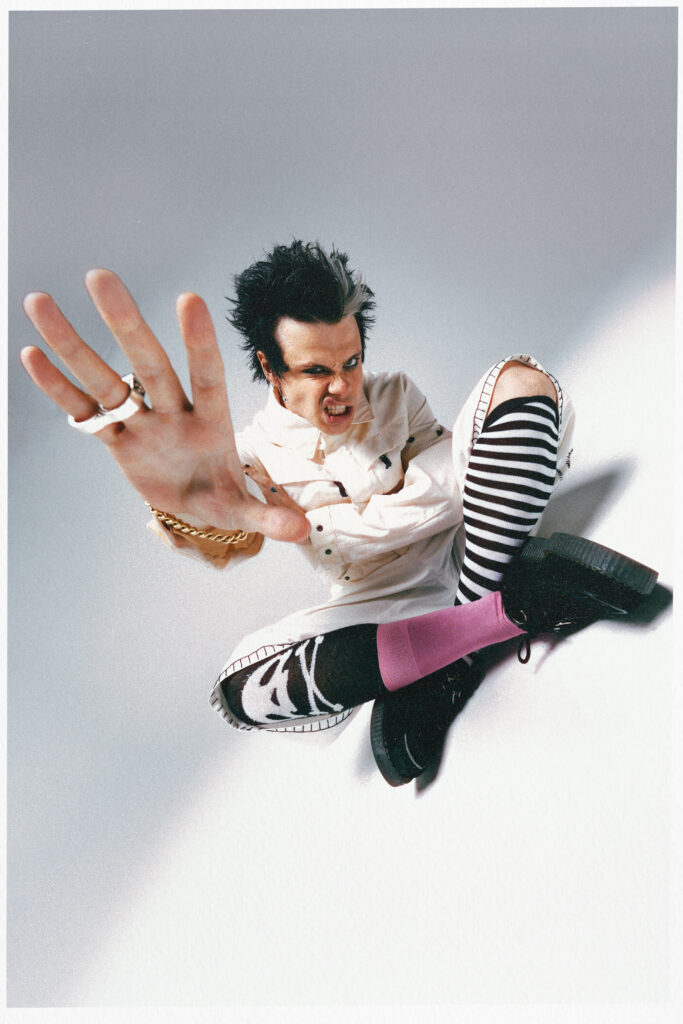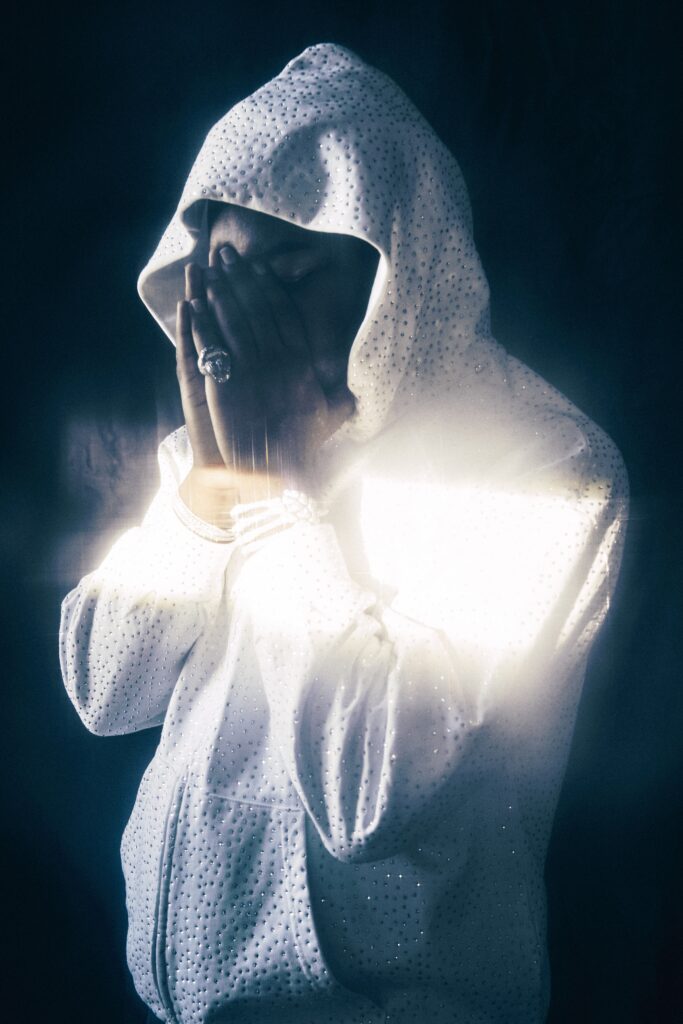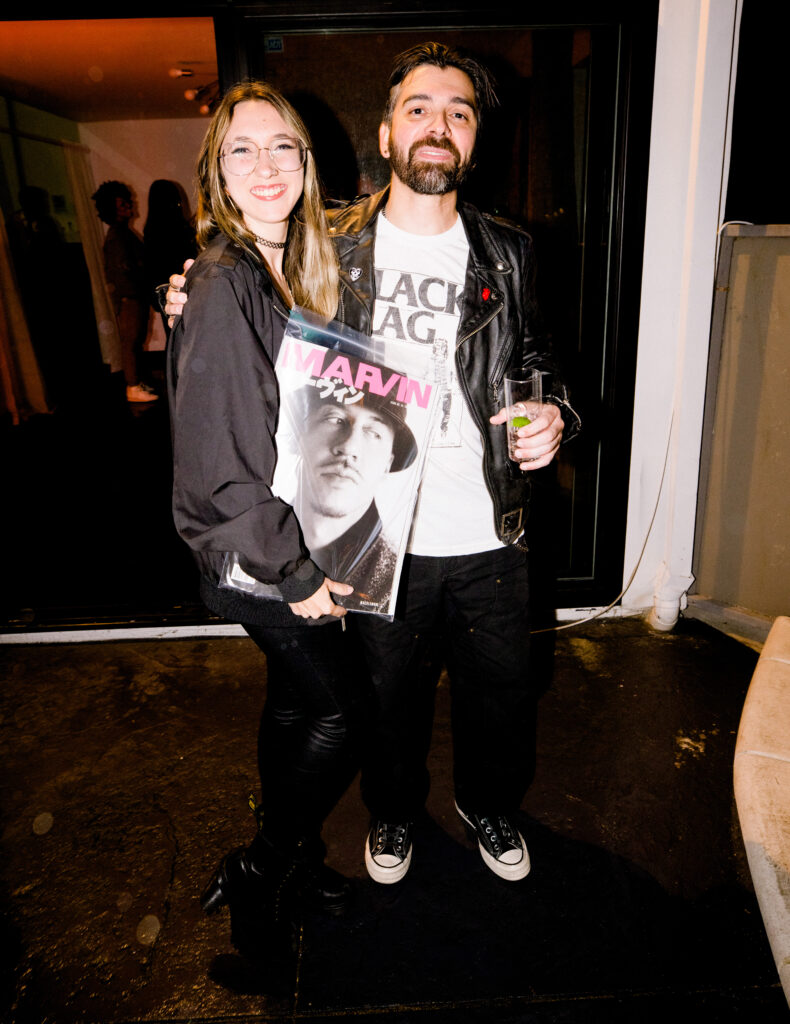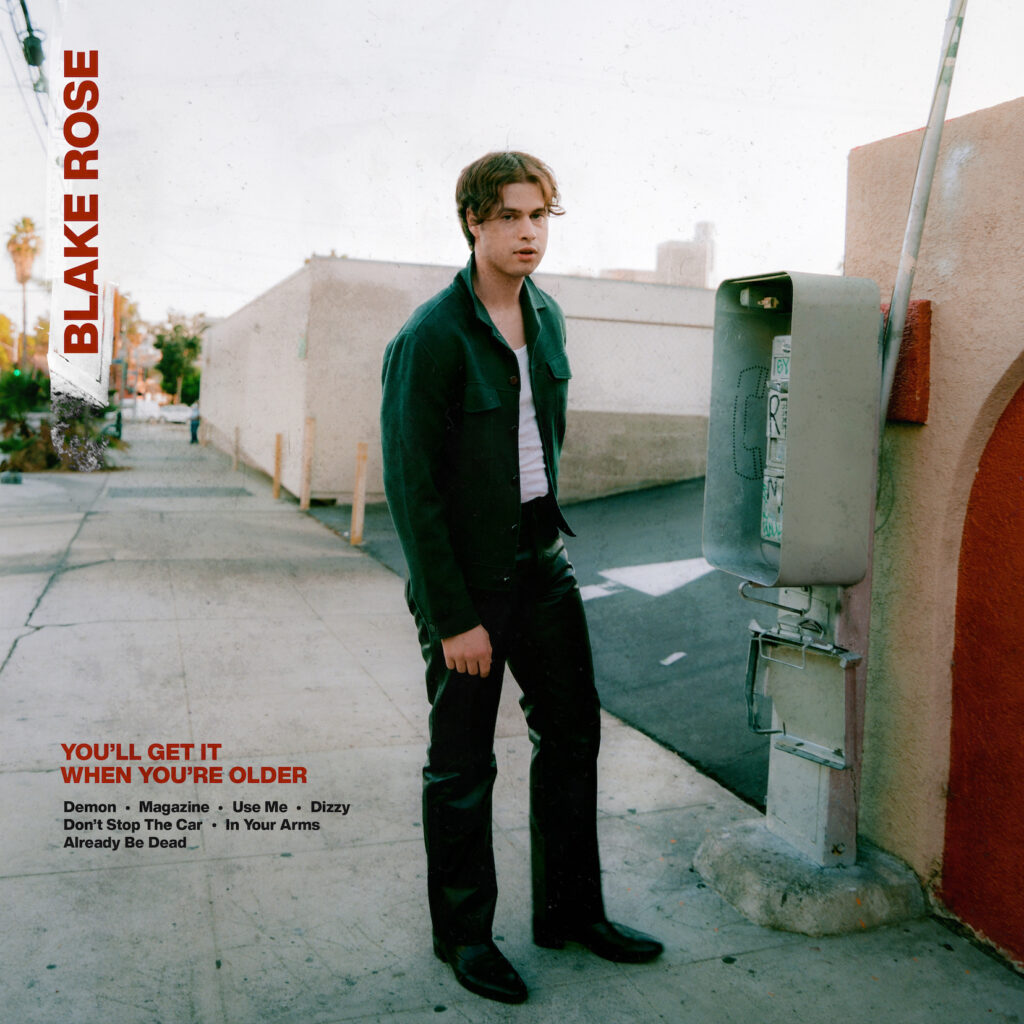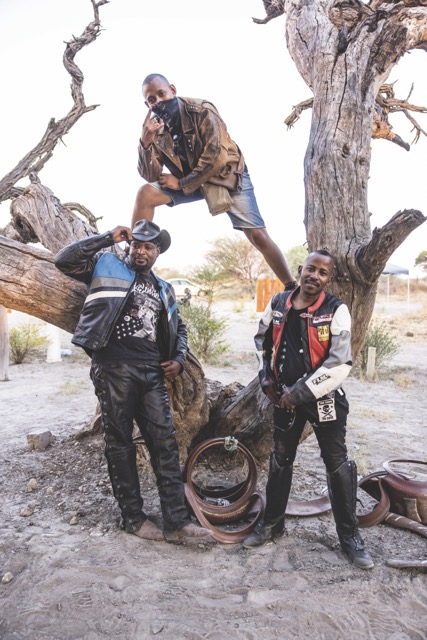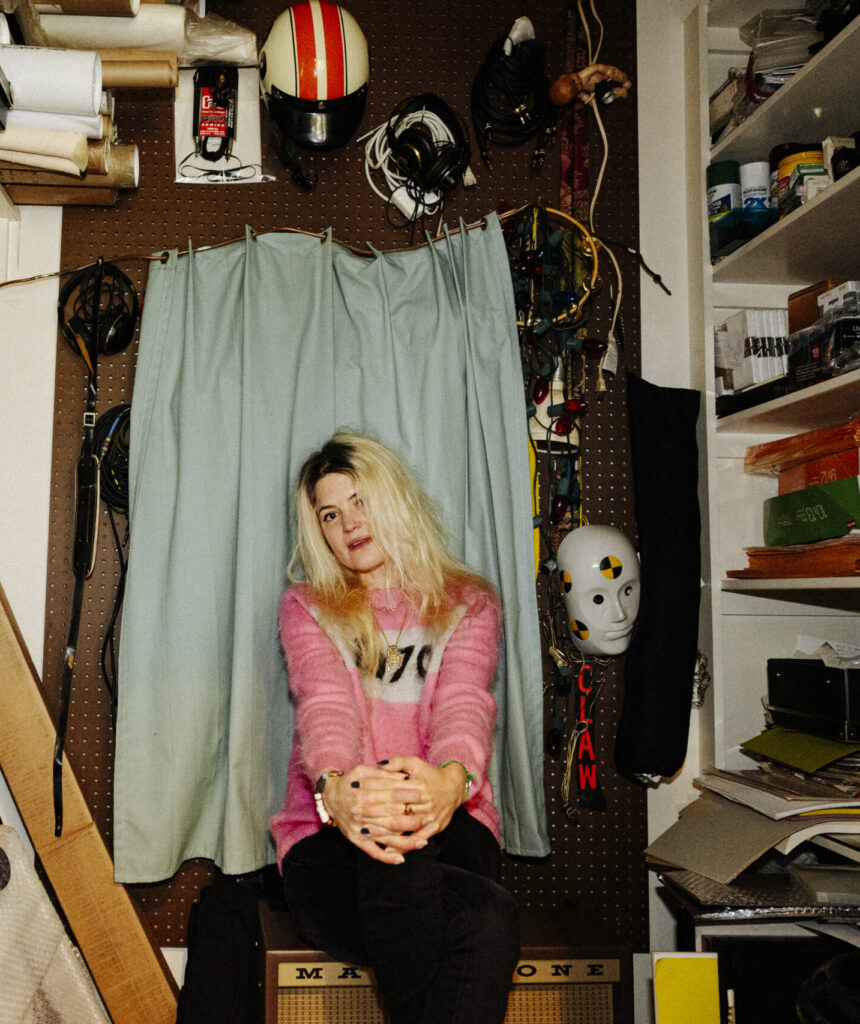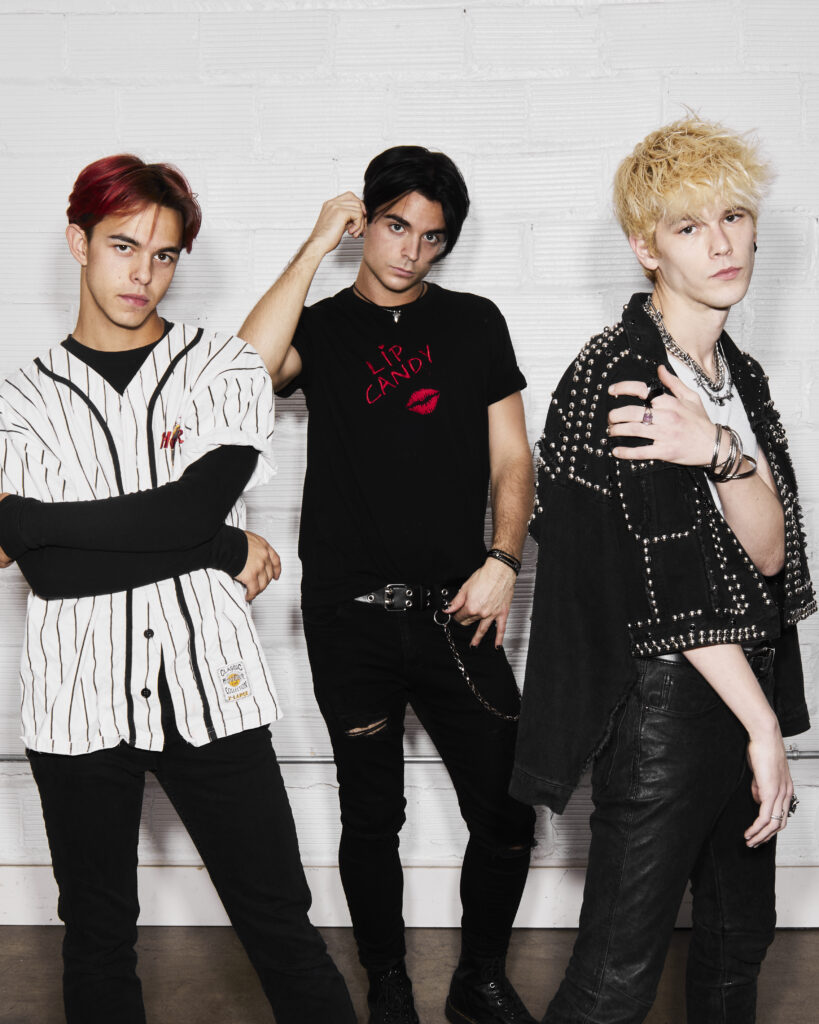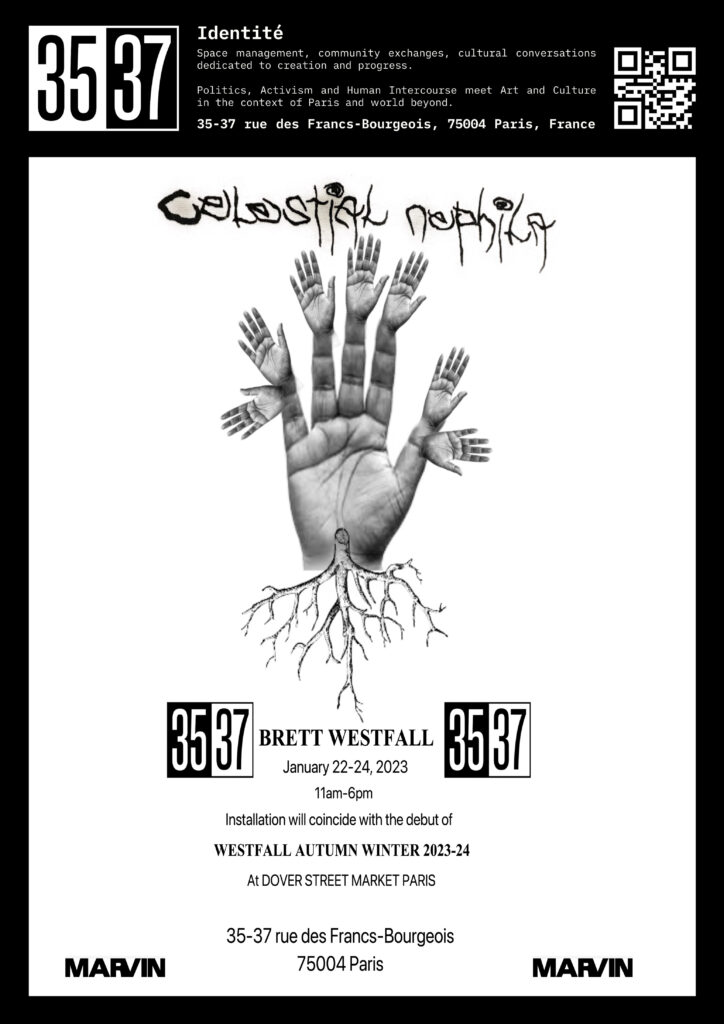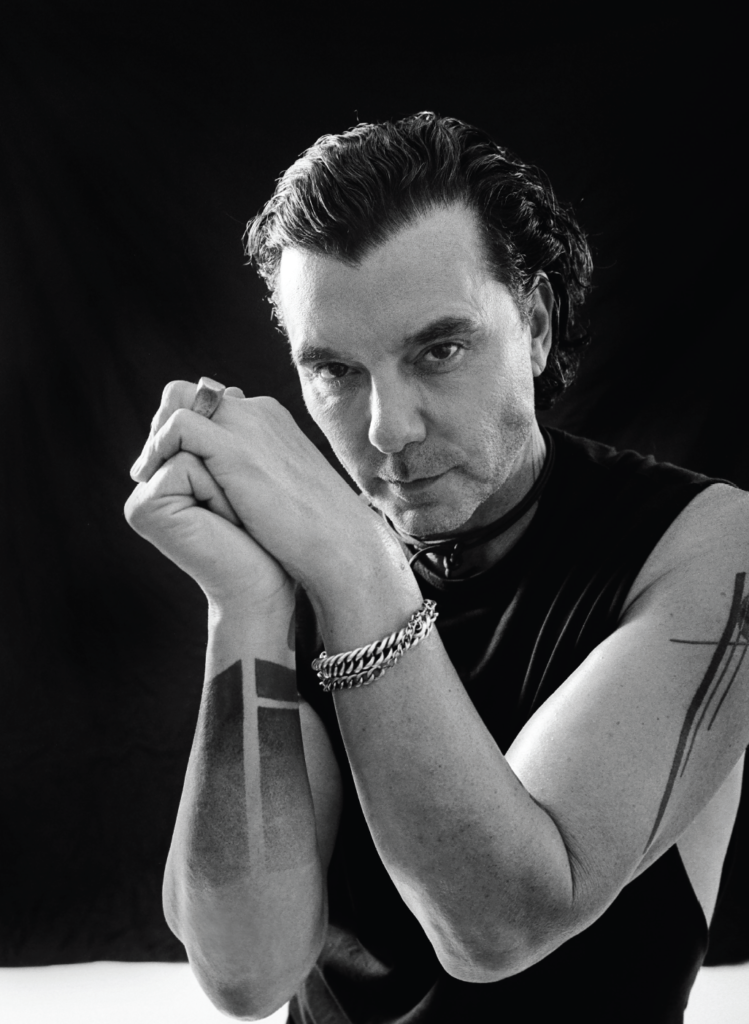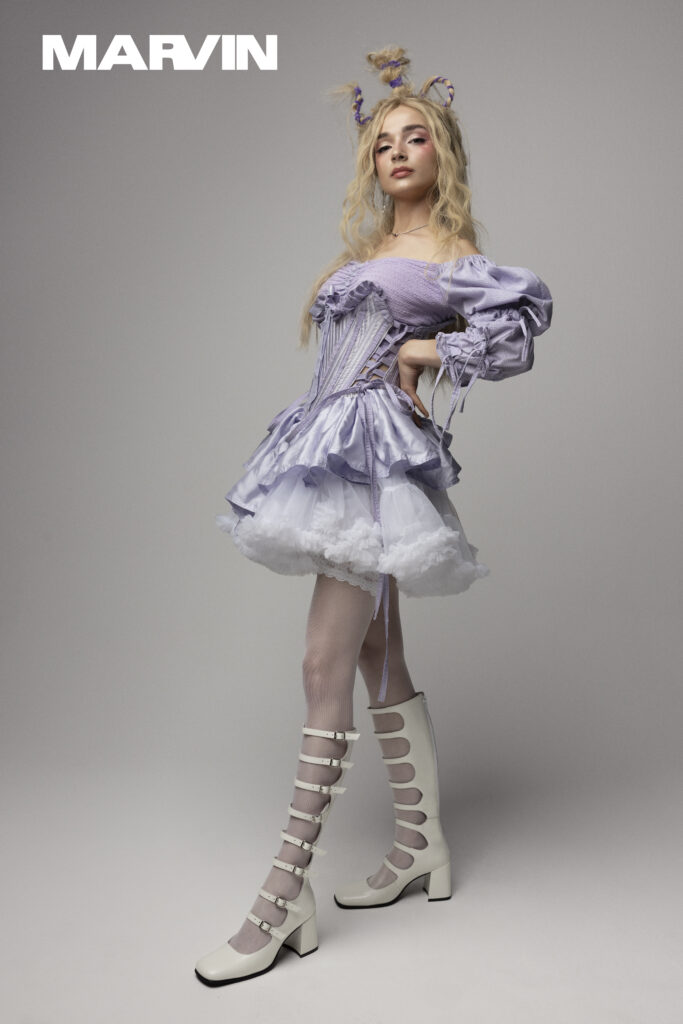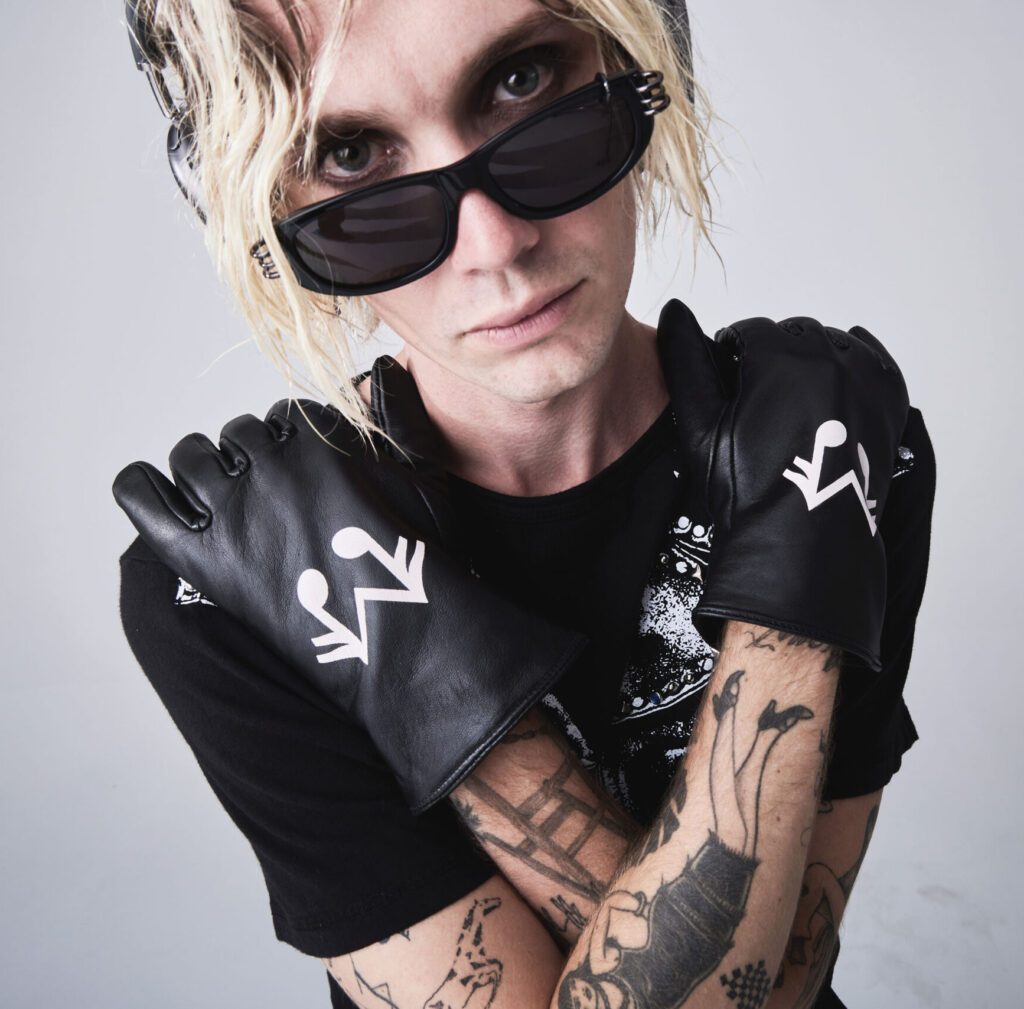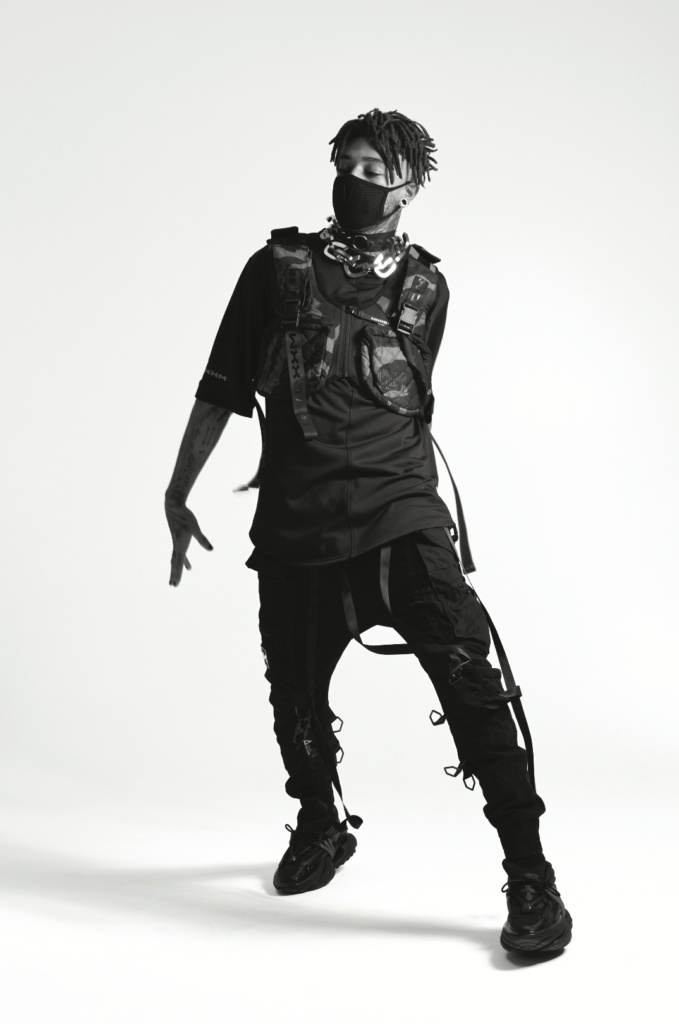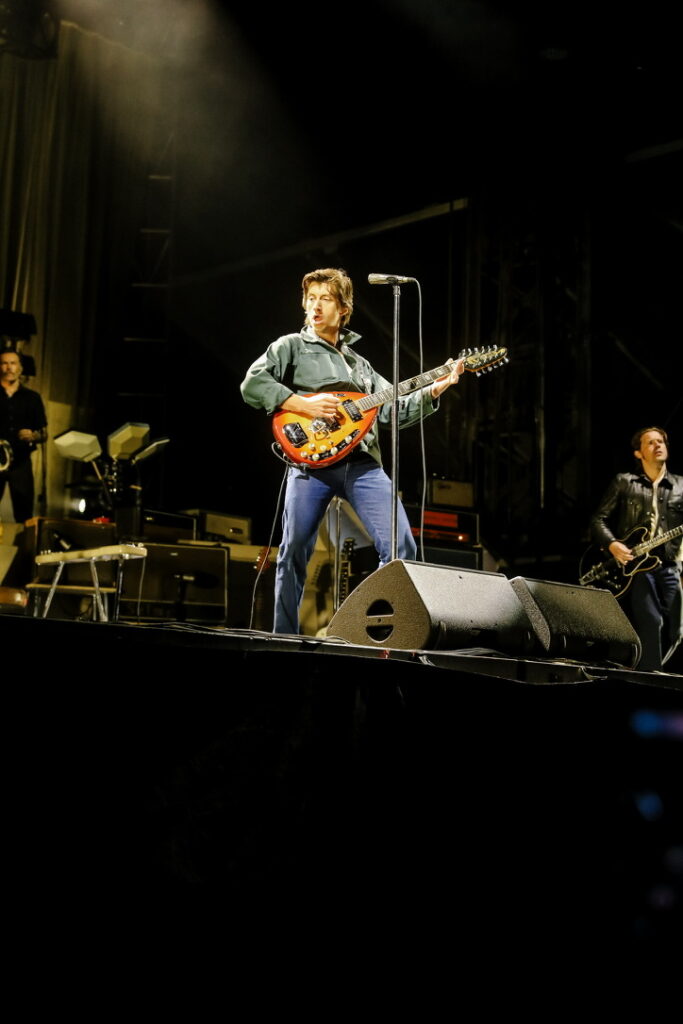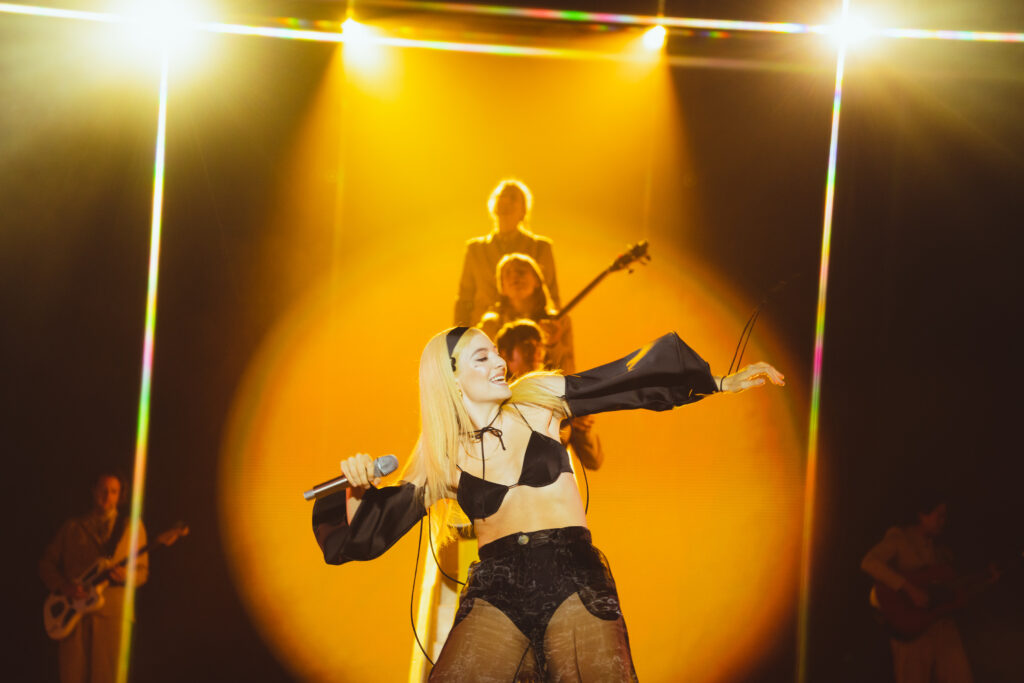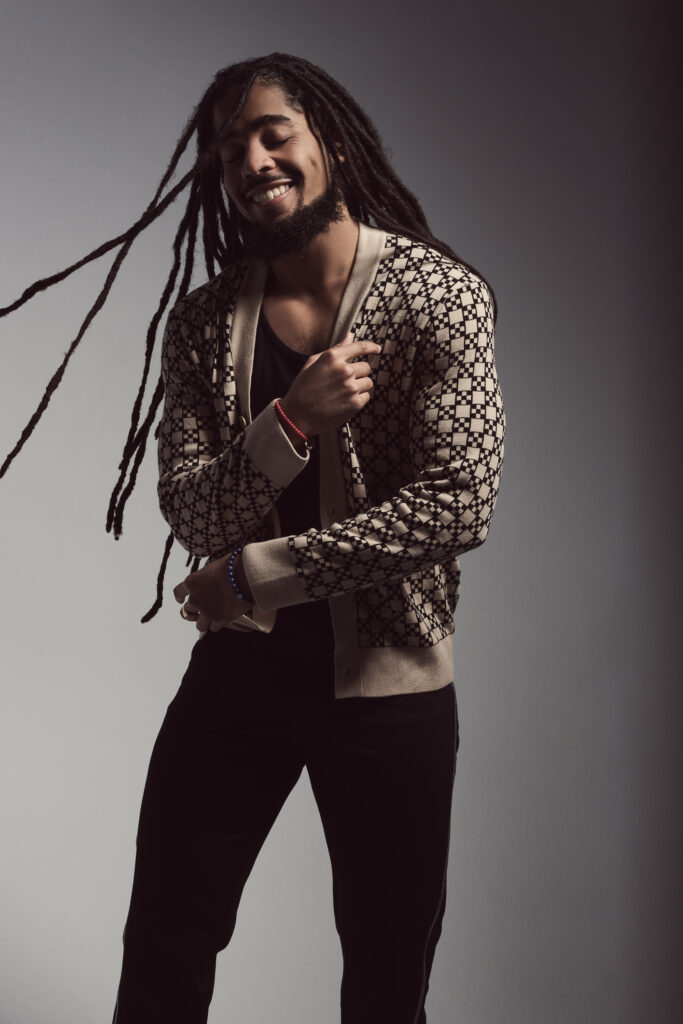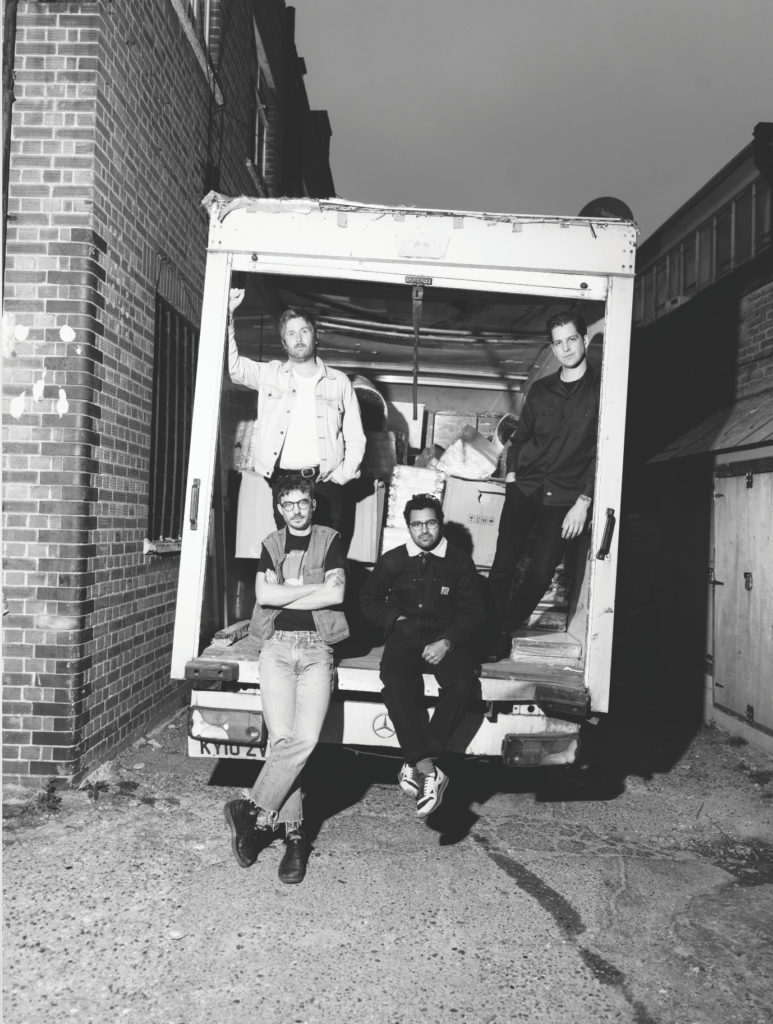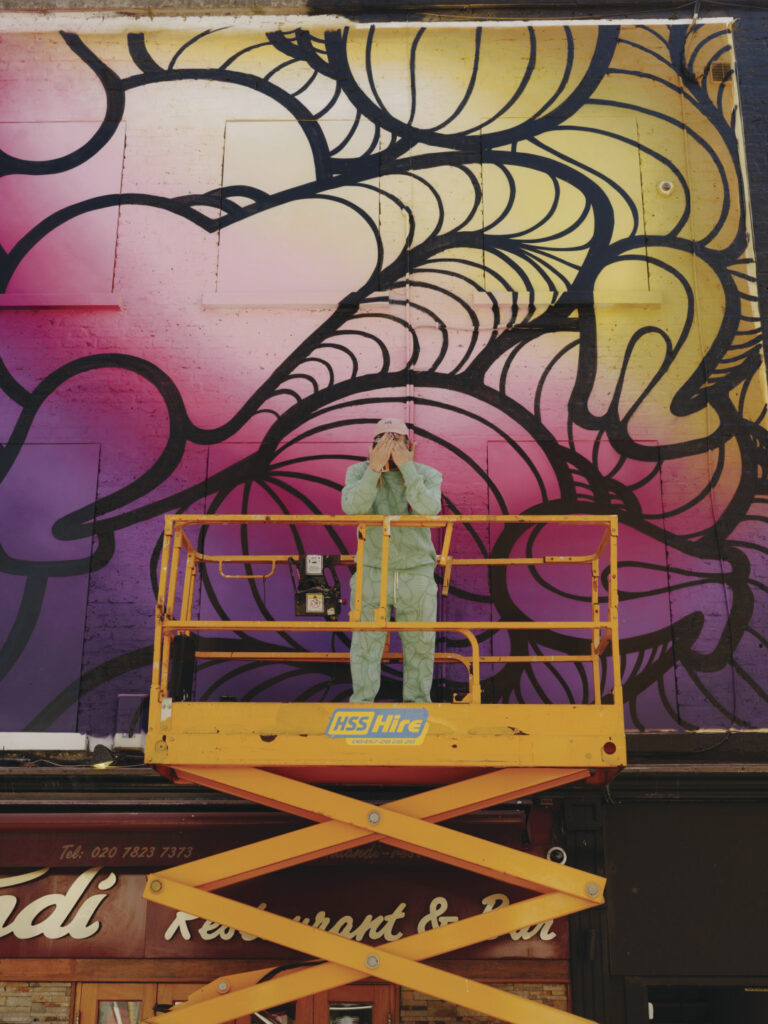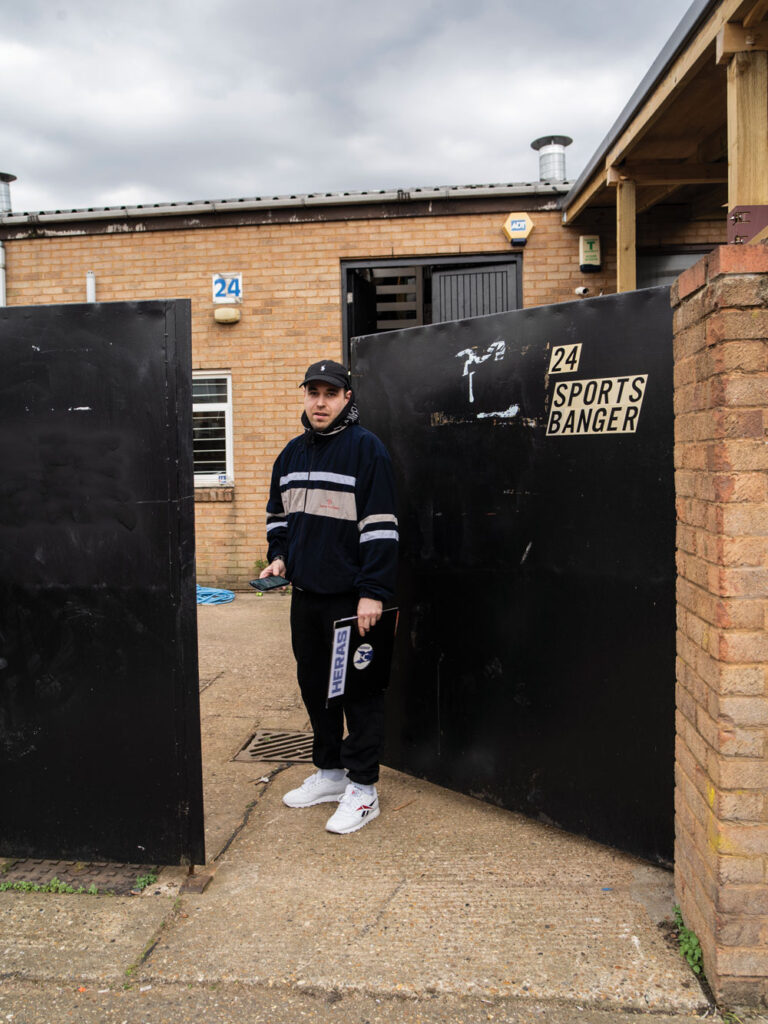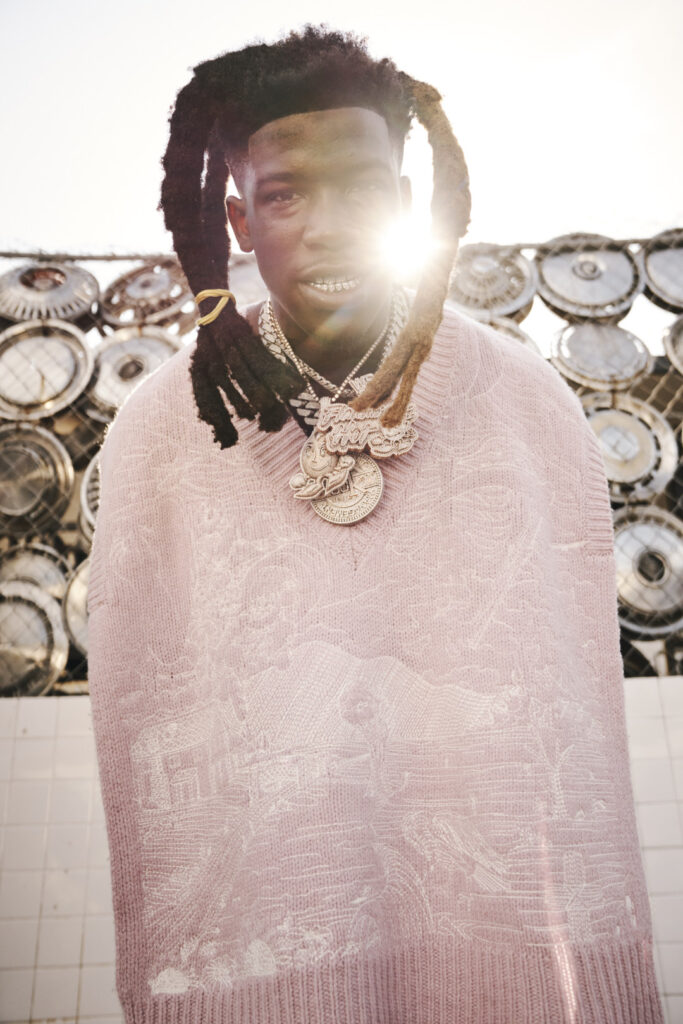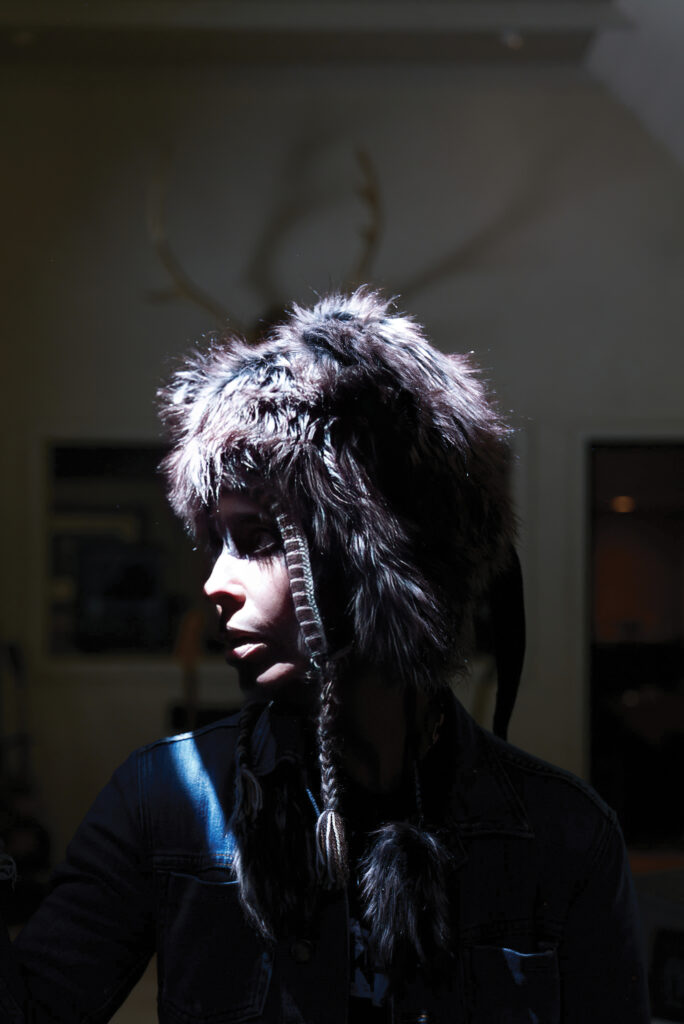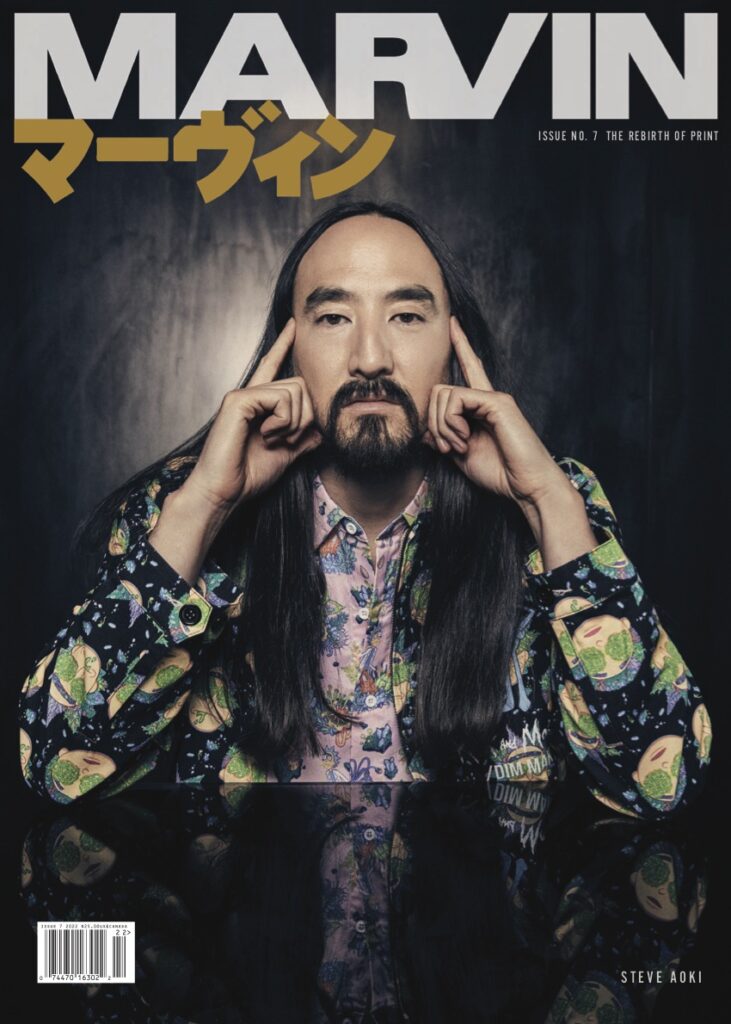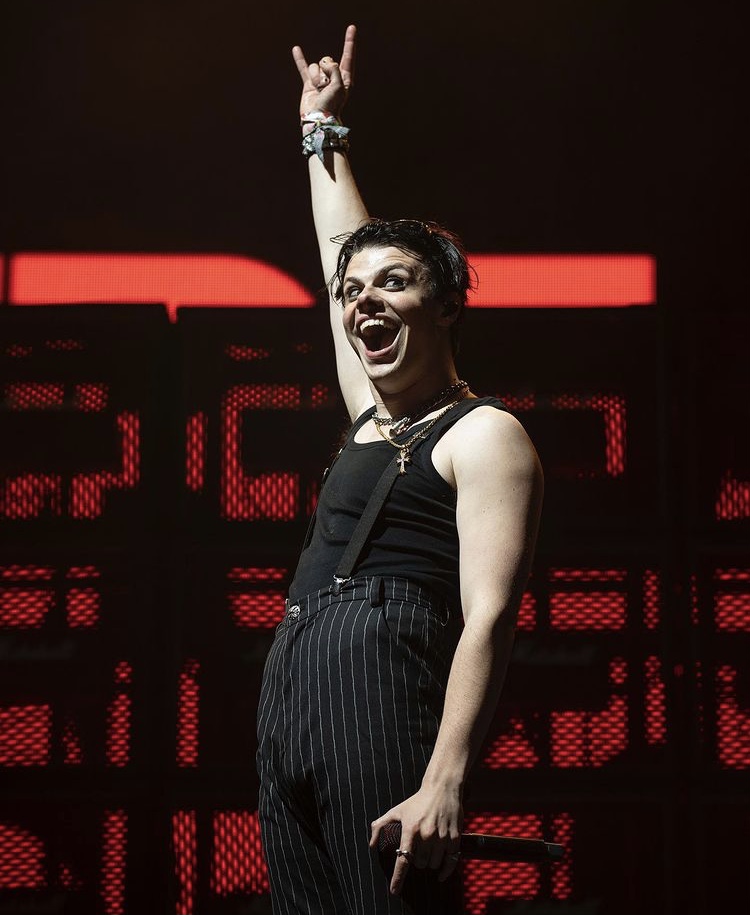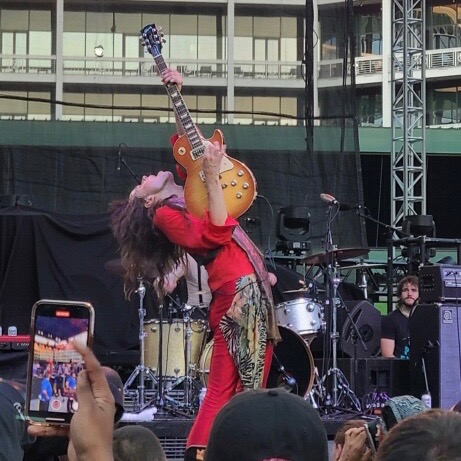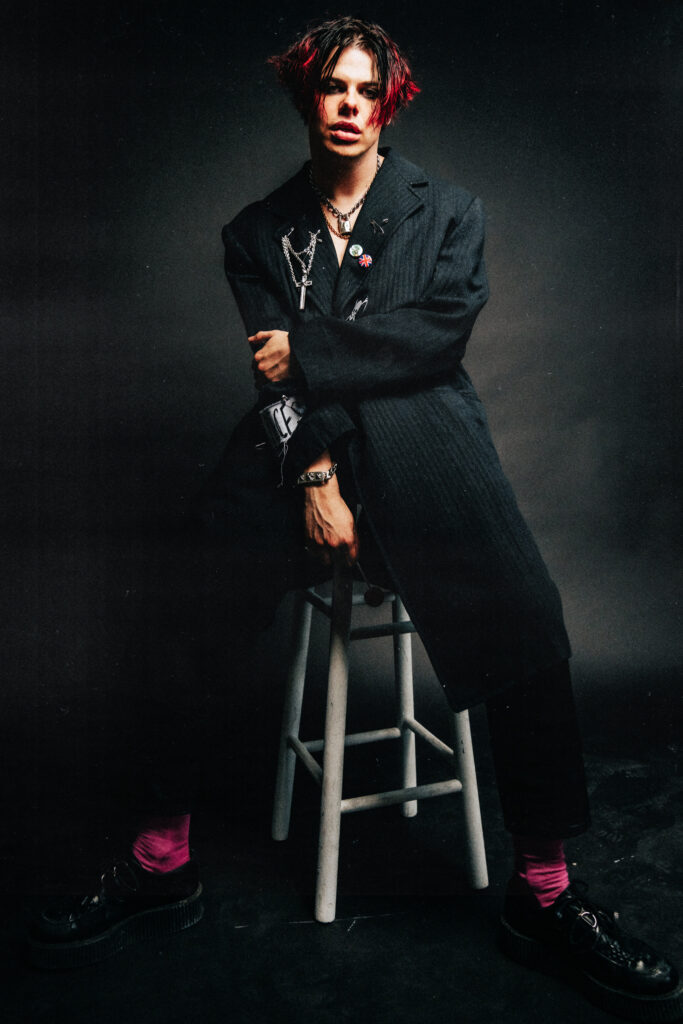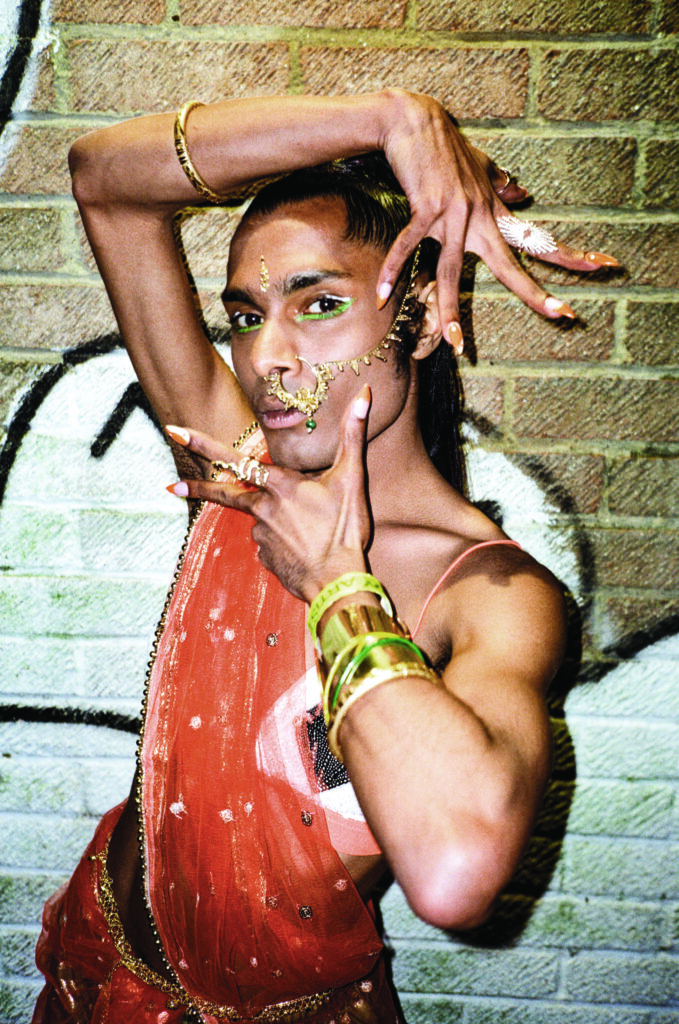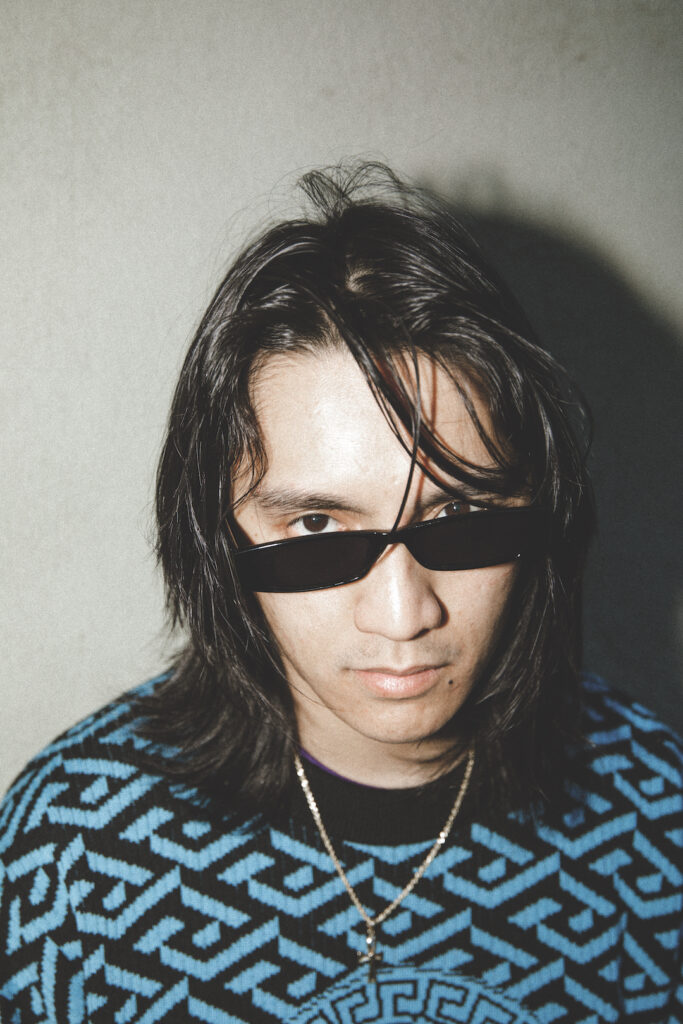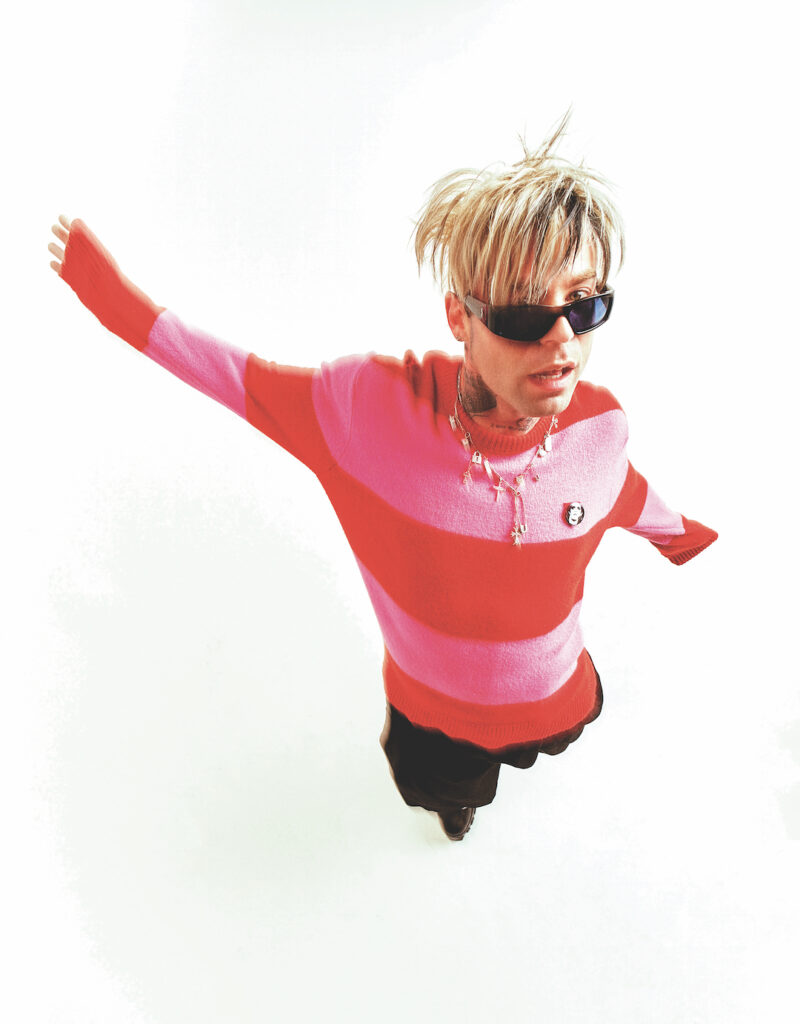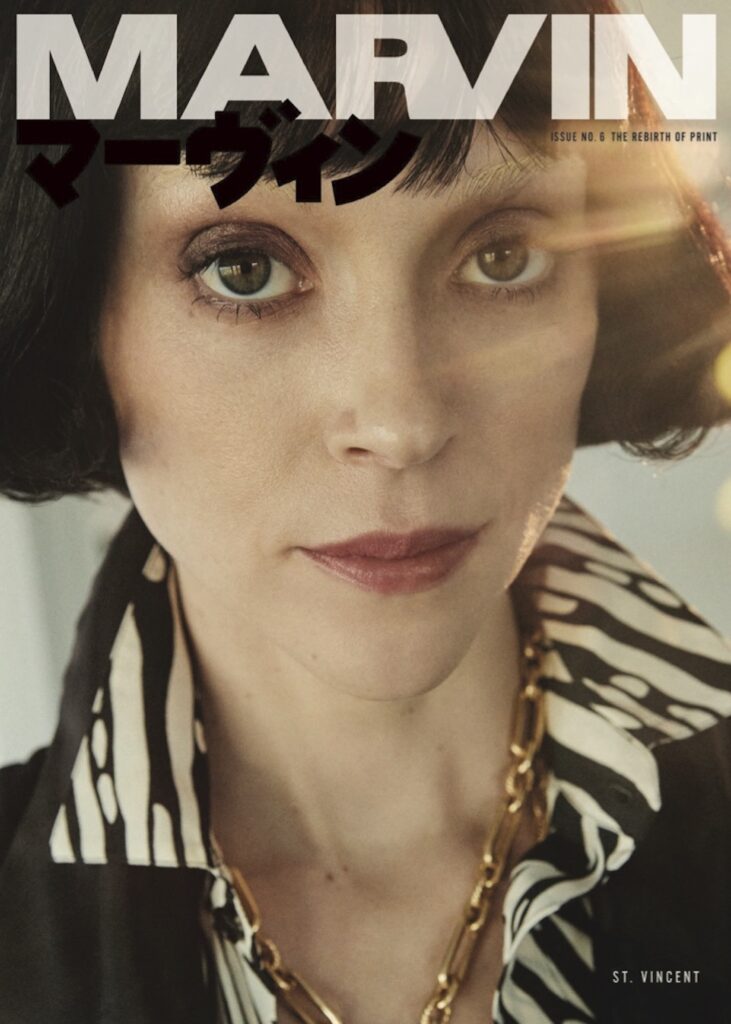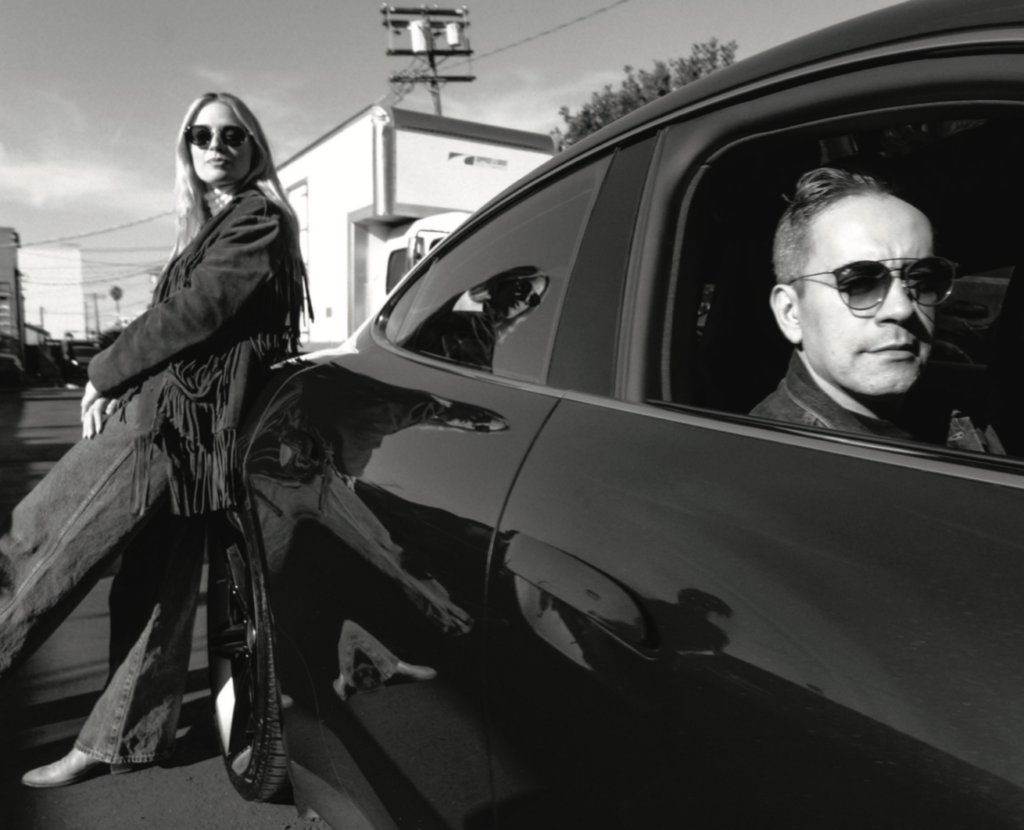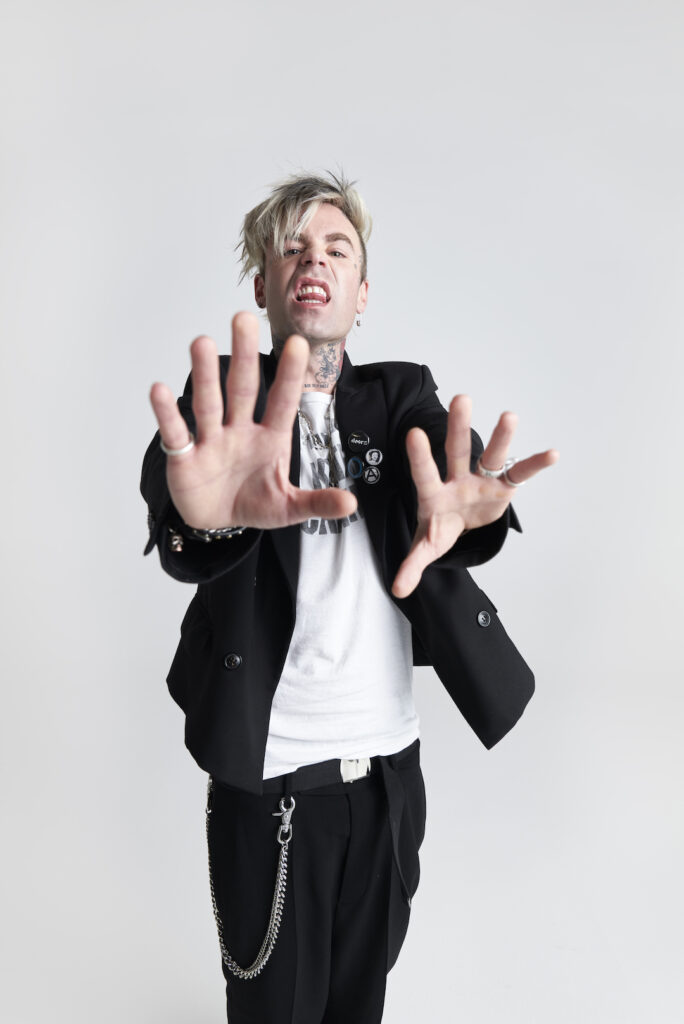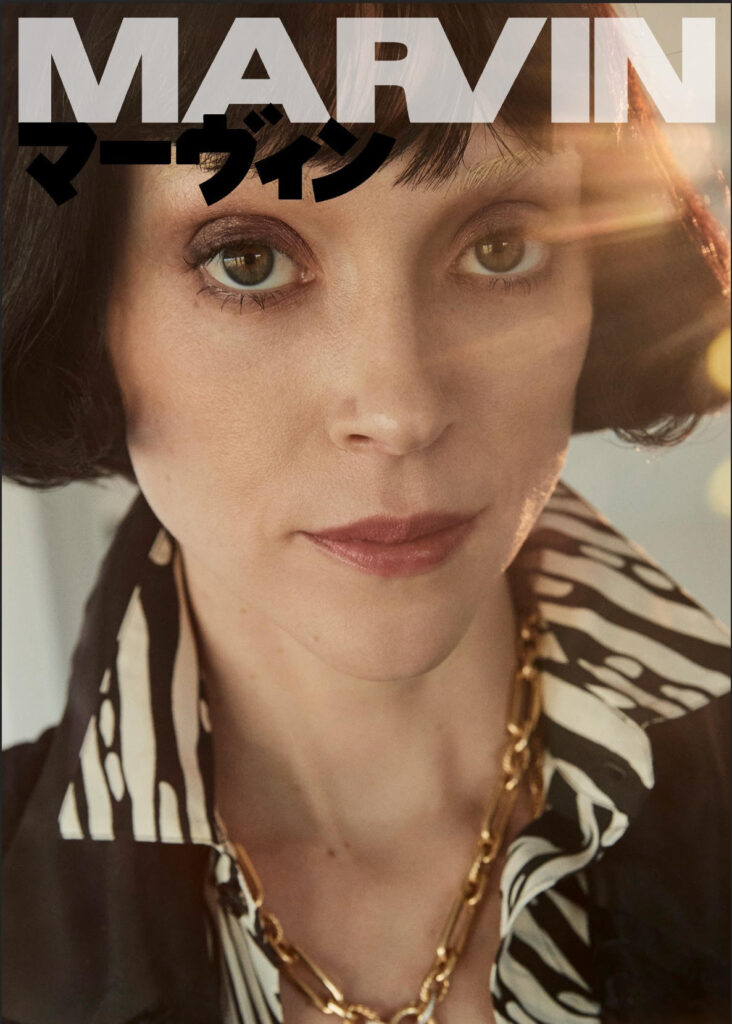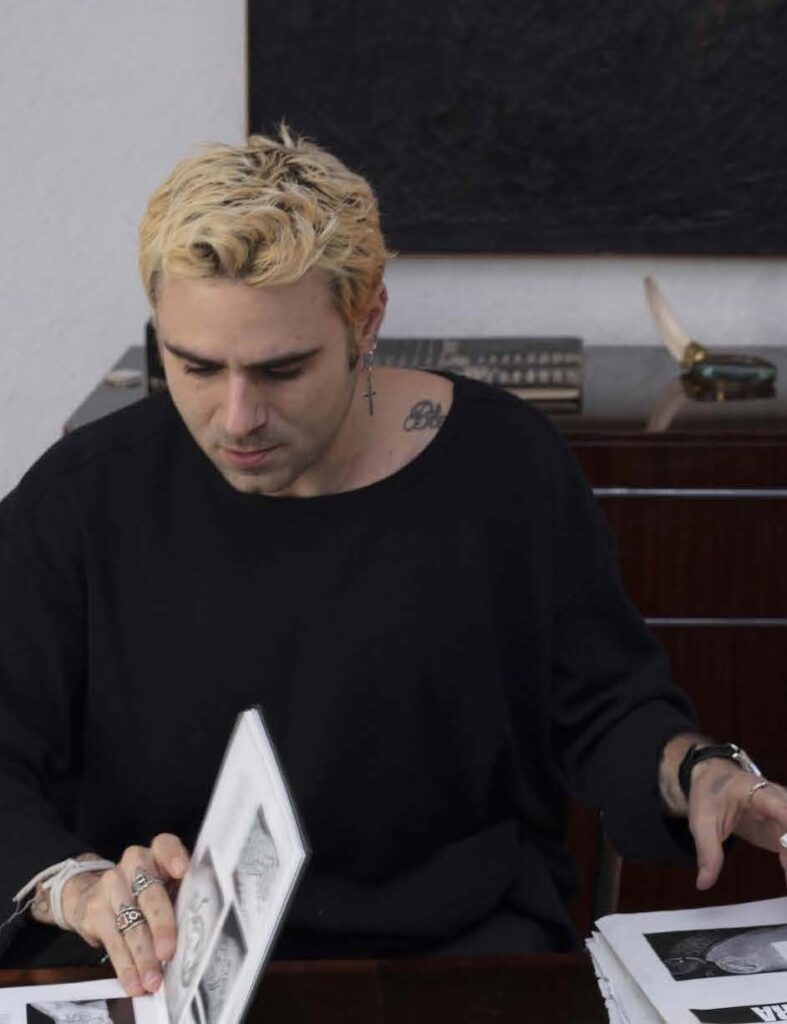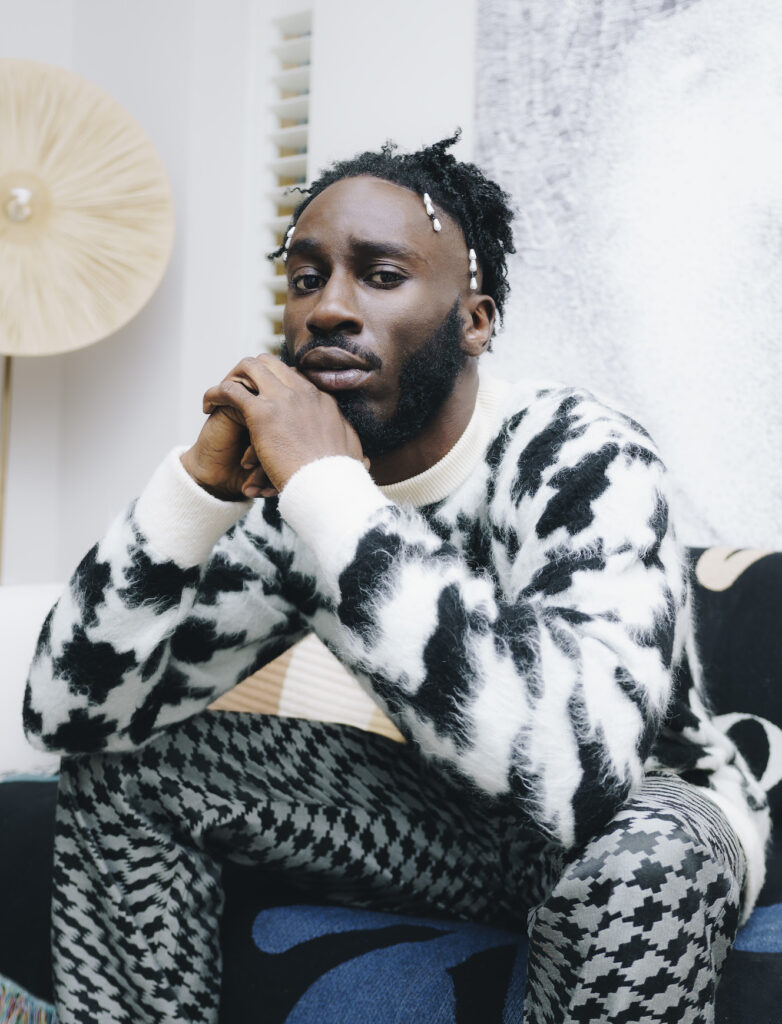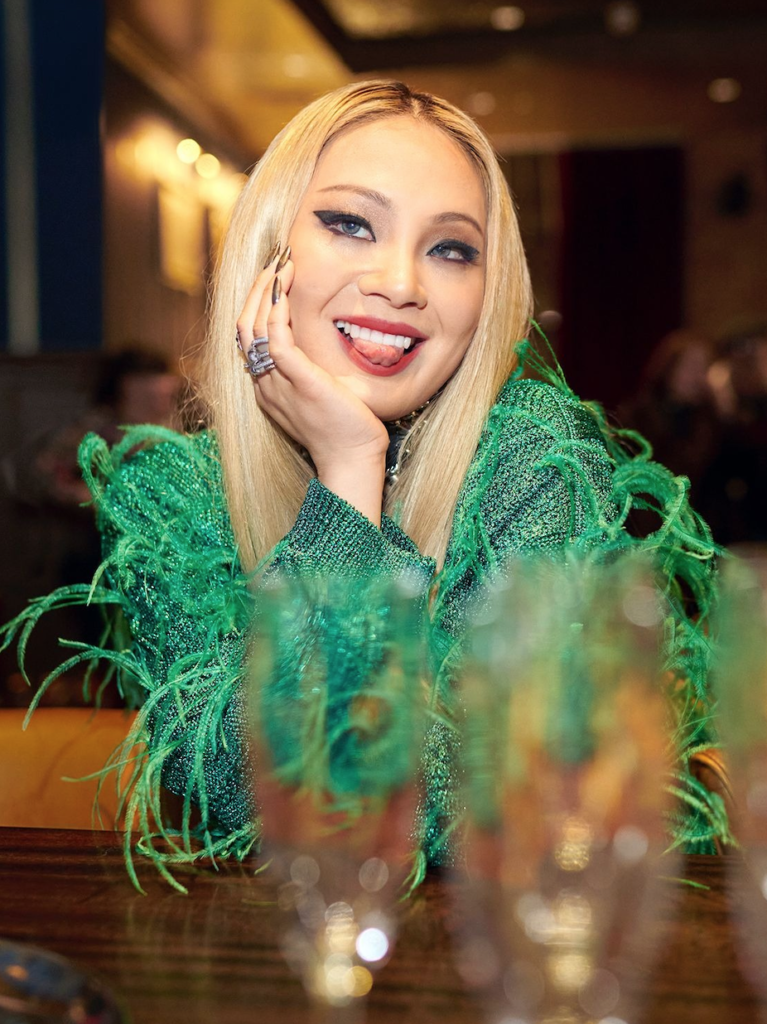London-Based Band HMLTD Gear Up For Their Most Ambitious Live Performance to Date
Photography by Dan Wilton
The first time I saw London based, mosh-pit bred HMLTD was at the peak of their early hype in 2017. Not only were they hyper-individualists and top-tier musicians but they were clocking clout as one of the most riotous art-pop, glam-infused, punk bands around. I balanced precariously on a handrail at the back of London’s Scala club and watched over the overtly styled new-gen, androgynous, and rowdy crowd. The lights cut and HMLTD tore into a mind-melting mix of trap beats, dub-step, cow- boy twang, pure punk, blissed-out surf rock and ska. They were charismatic and exhilarating from the moment frontman Henry Spychalski ripped into his opening vocals. Not long after, HMLTD inked a lucrative deal with Sony, went on tour with Nine Inch Nails, and posed for Hedi Slimane in Vogue. But then came the all-too-familiar story of a singular band finding friction with their new “masters.” They split from the label, viciously fought on and off stage, and abandoned their first album.
They may have flipped off a meteoric rise towards the mainstream but the dexterity of HMLTDs sonic and visual flex has always been too far beyond commercial fame for it to have been their destiny. Just off creating the first ever evolving-song- sold-out NFT and with a new album in the works, HMLTD are buzzing. I caught up with Henry, along with guitarists James Donovan and Duc Peterman, bassist Nico Mohnblatt, and drummer Achilleas Sarantaris, as they gear up for their most ambitious live performance to date.
What’s been your wildest gig?
Henry: We did a show at the Copeland Gallery in Peckham that descended into sheer chaos. The fire alarm was going off because we’d broken the smoke machine but nobody left. More than half the audience had their tops off. It was complete insanity. We positioned a smashed car in the middle of the venue and there were mannequins being thrown around everywhere.
James: It’s not the wildest, but my most memorable was one of the first ever gigs we played. A lot of bands make the mistake of playing venues packed with industry people without realizing those first shows, no matter who you are, will be abysmal. We found the least cool venues in London to build our confidence in. At a comedy club in Covent Garden, we supported a bunch of dads who were playing U2 covers. We ended up headlining because we brought the most people…which was five.
How did you form your sonic aesthetic?
Achilles: There’s been a lot of pushing and pulling, and there’s been a lot of years of creative disputes. Our sound started off as us being uncompromising and each of us having different musical backgrounds. We all came together wanting to do our own thing. I wanted to sound like Greek pop music, someone else wanted to sound like disco-pop. It wasn’t osmosis but eventually we went beyond the arguing and that mix of compromising ideas transcended into a method and aesthetic in itself that we can now use.
Henry: Before, every song would take two months to make — sometimes years. It would go through about seven iterations and often it would take on multiple different genres across its lifetime before reaching its final destination.
Nico: Cohesion is something that we’ve kinda battled against on purpose instead of something we’ve purposefully strived for. And I think now we’re in a good relationship where we still have that sort of off-kilter mix but we’re understanding what we do and how to use it. You need both order and chaos — and I’m not saying that just because I’m the engineer.
You made history earlier this year by creating “Leaving”— the world’s first ever-evolving, programmable NFT musical artwork. Fans can alter the track into 6,400 completely different songs. How did it feel to have it sell out?
Achilles: I think it’s been amazing. The thing with music is you go in the studio for a few years and you come out with the final piece and it has to be perfect. Everyone scrutinizes you immediately. It seems like other creative processes are much more open to the idea of the process itself being something to be celebrated with the audience. Something like theater for example is procedural. Every night, it changes. It’s not perfect until the final night. And I think music kind of lacks a sensitivity for the value of that. And also as a result, a sensitivity for the intimacy between audience and creator. There’s this sense that you get the record, you put it in your room, and that’s it. It’s done.
Duc: There is this huge element of fear of letting go of control of a song. With “Leaving,” it’s now up to the audience who possess the stems to actually finish the song. So, they’ve kind of taken that daunting task away from the band. In a way, it’s a blessing because I really hate having to just give someone the final product. For me, a song that I release is so much more than just that one song that’s on Spotify.
You once said you opened a Spotify check for your royalties and it was
$2.21. How crazy was it when you eventually signed a lucrative deal?
Duc: We were 19-year-old kids playing in a rehearsal room in London. Then one day a manager comes in and is like, “hey I wanna manage you.” Six months later we’re signed to Warner Records and Sony. Suddenly we’re given a million dollars and the press starts coming in: NME saying we’re the most exciting band in the UK. We barely knew how to play our instruments or how to write a song. You think about all your idols and it’s like, “how can I even compare to them?” We had a deep lack of confidence in ourselves. So the only way to make up for that fact was to show off with overconfidence. And that also played into us being very toxic to each other as well.
What was the most extravagant thing you’ve spent money on?
Henry: When we first signed to Sony we spent $4,000 on sushi.
Duc: When we signed to Warner, our publisher, I ordered a single shot of whiskey from 1825 or something that was $300.
Achilles: Spending $11,000 on chicken heads and squeaky toys is number one.
Sorry?
Harry: It was originally meant to be $16,500 but it got dropped down to $11,000 because we refused to wear the brand’s clothes. Instead I wound up being tarred and feathered and wearing this crown of chicken heads. Midway through the show the blood from the chickens’ heads was dripping down my face and into my mouth and eyes from sweating so much. I was sick for a couple of weeks after that from the salmonella. I was throwing up from all these raw chicken heads, and they absolutely stank as well.
What advice would you give to alternative bands coming up now?
Achilles: There is going to be a big reality check when you become a musician and you realize how fucking hard it is. I would advise against the allure of big cash. When it comes to labels the whole system operates in an incredibly commodifying way where an artist becomes just a vessel for the corporation. I understand that there’s musical avenues and certain genres where that makes sense. But I don’t think you can apply that to everyone. Slowly, inch by inch, they take more control until eventually you end up with an album that you don’t recognize.
Nico: What’s funny is that we heard all of this but we didn’t listen. I think the one time that it finally clicked for me was when we were supporting Nine Inch Nails and Trent was like: “Don’t take any bullshit from anyone else. Trust yourself.” It’s totally wild that it took Trent Reznor to cement that.
You’re gearing up to play your most ambitious live performance to date this winter at London’s Heaven superclub. Can you give fans a hint of what to expect?
Henry: We’re recreating the Stanford prison experiment where the audience will be split into two different classes. Prisoners and guards, upper and lower class. It’s an interactive and immersive night with the potential for conflict and treachery. The Heaven show is the thing I’m most looking forward to this year. I think it’s going to descend into violence and chaos or at least I hope it does. We’ve always been interested in authoritarianism and flirted with politics, but I think up until this point our live shows have always felt a bit escapist. I felt that I wanted to do something that had a bit more of a point.
What’s happening with the new album?
Duc: It’s like [2020s debut album] West of Eden is a lake and the next album is the ocean. It’s inspired by Ouroboros which is an ancient Greek circular symbol which depicts a snake eating its own tail. It represents infinity and the concept of eternity and endless return – the eternal cycle of destruction, death, and most of all for us, rebirth.
Henry: I think once we left Sony and started doing West of Eden ourselves and making music again independently, it was a lot more fun. I always say that the funniest thing about our first album is that we started it in the studio in LA where Michael Jackson recorded Thriller, and ended it in Duc’s bedroom in Peckham with me using his closet for a vocal booth. But we are much happier doing it that way. And the freedom that returned from doing that was a fucking good reminder of what the band was always about and what we’re making next.
@hmltd


